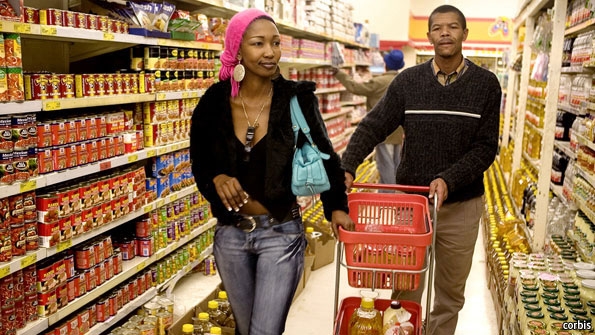A lot of issues have been raised on the rise of the middle class in Africa and the impetus that can bring to economic growth and transformation in Africa.
Many analysts have raised concerns about various economic class criteria used in Africa and how that links to class responsibilities towards societal good. While this debate continues, how do we justify the increasing growth of the middle class in Africa which seems to be ploughing at the back of a large population of the continent’s poor?
What are the economic implications of the growth of the middle class in Africa for the poor? What sort of economic prosperity does this signify? Should policy makers be concerned about developing policies to increase the number of the middle class in Africa or otherwise?
Debatable reports from various distinguished quarters both on the continent and elsewhere shown that a third of Africans are now in the middle class. A report by the African Development Bank (AfDB) states that Africa’s middle class will triple to more than one billion people in the next half-century.
Another report by AfDB predicts that the number of Africans earning between $4 and $20 a day will balloon from 335 million people today to 1.1 billion by 2060, which will represent 42% of the continent’s population. That is one in three Africans will be in the middle class bracket.
A corroborative report from the African Development Bank states that, 34%, or 313 million Africans are now middle class (living on $2-$20 a day), that is after several decades without any change, a jump from 27% in 2000.
Over the last few decades, the numbers have steadily risen from approximately 111 million or 26% of the population in 1980 to around 151.4 million (27%) in 1990. The 2010 figure shows an even more significant surge of 60% from the 2000 figure of 196 million or 27.2% of total population. That is indeed a tremendous economic achievement.
There are many indicators used by various economists to define what really constitute the middle class. This span the rate of savings and consumption as well as the range of scale of living ($2-$20 a day).
How does this middle class growth connect to the overall wealth of all Africans?
MIT, USA, economists Abhijit Banerjee and Esther Duflo point out that the middle classes are less connected to agriculture, thus they do not derive income from farming and rural economic activities; and that they are more likely to be engaged in small business activities. They benefit from formal sector employment, with a weekly or monthly salary, which enables them to adopt a longer-term perspective towards their finances.
Africa’s middle class is highest and strongest in countries that have a robust and growing private sector as many middle class individuals tend to be local entrepreneurs. The businesses formed are able to transform local goods into products for everyday immediate use.
That means that the agricultural sector becomes more lucrative as a result of the demand for raw materials while at the same time appealing to young college graduates who may not find work in the public or the private business sectors.
However, the prevalence of the majority poor calls for broader perspectives in the consideration and defining of who makes up the middle class. Like level of education, professions, lifestyle choices as well as aspirations can be factored into the equation.
On one hand, the growth of Africa’s middle class has been attributed to other factors such as the youthful nature of the continent’s population. This means a strong labor force and a large consumer base for expansion of businesses which eventually leads to reduction in unemployment rates are immense. The youth constitute between 60 to 70% of the continent’s population with a median age of about 20 years compared with 29 years in Asia and that of Europe is 40 years.
Again, the tremendous economic growth in Africa averaging about 4.7% in the last decade compared with 2.5% for the rest of the global economy, has also had a significant impact on the standard of living of most Africans.
There are economic, social and political reasons why the rise of the middle class in Africa matters for poverty reduction.
First, since most people in the rising middle class are small business owners, there is a wider potential to hire workers. Secondly, as middle class rises, there is potential for a larger consumer market. People tend to demand more goods compared with the poor, hence the potential to drive economic growth and attract private investors both locally and elsewhere.
Thirdly, a rising middle class in Africa means a potential for savings and investment. As people tend to save and eventually invest. This means that adequate capital could be sourced domestically other than depending on development partners’ donations.
Lastly, a rising middle class helps shape political policies on the continent. The middle class are more likely to hold governments accountable for decisions.
Strong economic growth in Africa over the past two decades has been accompanied by the emergence of a sizable middle class and a significant reduction in poverty. It is imperative that we foster middle class growth in Africa. This should be the primary interest of policy makers. Conscious economic, political and social policies should be implemented to achieve an enviable and strong middle class in Africa.











I see a rise in an exploitative middle class! Thats it, nothing more.